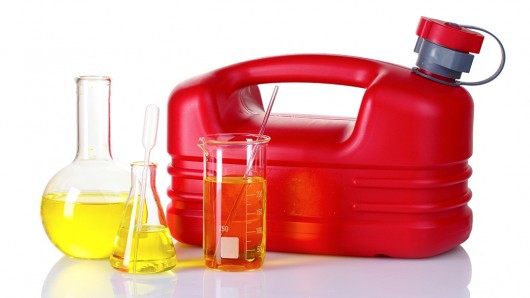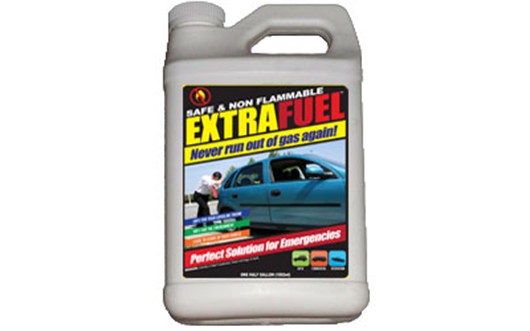Extra Fuel is a safe petrol reserve to keep you motoring
By David Szondy
October 15, 2012

Extra Fuel provides motorists with fuel to prevent stranding (Photo: Shutterstock)
If you live in the country or take long road trips, having the fuel light start flashing when youíre miles from anywhere can be a white-knuckle event. Itís tempting to carry a can of extra fuel in the boot for such emergencies, but gasoline is extremely flammable and vents off dangerous gases if it gets warm, so itís not exactly a safe option. Extra Fuel is an alternative to conventional gasoline that will run any petrol engine, yet is safe to take along.
Extra Fuel is designed to be safe Ė not because of what is in it, but what isn't. The reason why gasoline is so dangerous to keep stored in a car is because it isn't one simple chemical. Itís a mixture of organic compounds and some of them, such as butane, pentane, hexane and heptane, are extremely volatile. They vaporize at relatively low temperatures and if stored in a vehicle on a hot day they can pop the vent on a storage can and fill the car with dangerous, flammable fumes.
Made by Extra Fuel LLC, Extra Fuel is gasoline without these volatiles. It will still burn in any petrol engine, giving the same mileage, and has an octane rating of 91, but is much harder to set alight unless exposed to an open spark or flame. Because of this, the United States National Fire Prevention Agency (NFPA) and a Department of Transportation (DOT) have rated Extra Fuel as Combustible instead of Inflammable.
Without the volatiles, the product produces ďless pressure than a container of orange juice when exposed to high temperatures.Ē It also has a 10-year shelf life because, unlike conventional gasoline, it has no olefin, which breaks down into gum in improperly stored fuel.
According to the makers, Extra Fuel works by forcing the residual gasoline in the tank into the fuel line so the engine can start. The Extra Fuel then runs the engine. The lack of volatiles seems to make it dependent on the residual fuel to get the engine going, which may be a drawback if the tank is really empty. Also, at US$19.99 for a one-half gallon (1.89 liter) bottle itís ten times as expensive as buying fuel at the pump in the United States, so itís not exactly economical. But for peace of mind, it might just be worth the investment.
Source: Extra Fuel via Lifehacker
Copyright © gizmag 2003 - 2012 To subscribe or visit go to: http://www.gizmag.com
